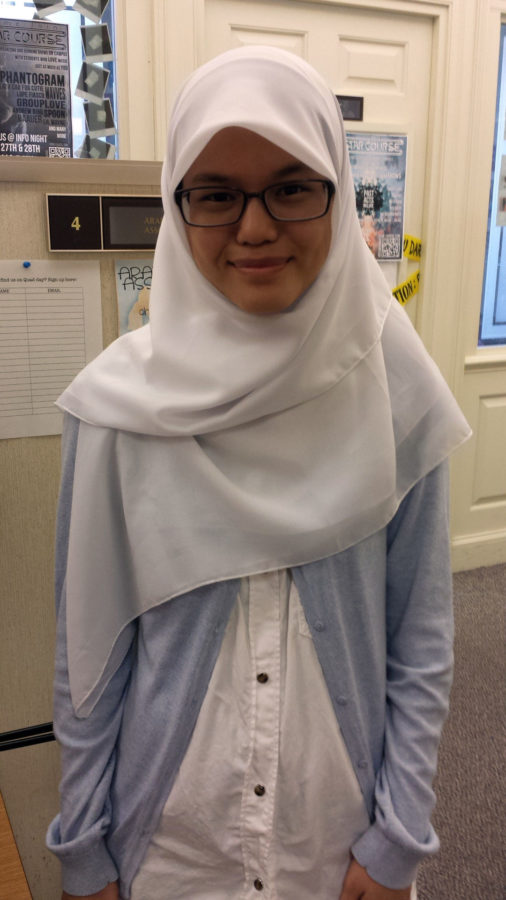Impact of 9/11 still resonates with Muslim-American students on its 13th anniversary
Sep 11, 2014
Last updated on May 11, 2016 at 02:45 a.m.
Most Americans have strong memories, emotions and other associations that are forever connected to Sept. 11, 2001. Many Muslims, as members of a minority that faced immense misrepresentation in the attack’s aftermath, additionally go through a complex, emotional thought process on each anniversary of tragic event.
After having spent the last 13 years rebuilding a reputation that was all but shattered by media distortion, Muslim-Americans have struggled to find acceptance and understanding in the United States while holding on to their religious ideals.
Reema Ghabra
Reema Ghabra, freshman in LAS, was in kindergarten class on 9/11. She remembers being sent home from school and watching the reports of the attacks.
Get The Daily Illini in your inbox!
She said on each 9/11 anniversary, she remembers those who were lost but worries about the potential for increased attention.
“I hope no one says anything to me about it,” she said.
Ghabra recalls a time soon after the attack when she, her mom and her sister were at the mall, and a woman yelled, “Go back to your country,” despite the fact that Ghabra was born in the United States.
When such incidents of discrimination occur, Ghabra said, “I like to not think about it, because it just intensifies my anger and my animosity.”
But she said 13 years later, people have become much more understanding towards herself and other Muslims.
“There are not as many hate crimes,” Ghabra said. “People want to understand Islam. They don’t antagonize me anymore.”
Omar Dawood
Omar Dawood, junior in LAS, was seven years old when the Twin Towers came down.
“All I remember is when I came home, some time at night, my parents were watching the news, and I was doing my best to make sense of it,” Dawood said. “All I heard was ‘Muslim’ and ‘terrorist’ and ‘attack.’ It didn’t make much sense to me, but I asked my parents, and they didn’t really want me to freak out, so they told me they were just rumors.”
Dawood said he feels a deep sense of sadness on each 9/11 anniversary because of the misunderstanding that ensued.
“As a Muslim, even though you know that what happened that day isn’t at all a representation of Islam, it’s sad that that’s the kind of representation non-Muslim people usually see,” he said. “And I don’t blame them; they can’t help but associate it in that manner.”
At the time of the attacks, Dawood was living in southern Virginia. He said the environment of that town was much different from that of Central Illinois.
“When I was growing up, I experienced episodes of racism,” he said. “I remember being in fifth grade and having my fellow Muslim sisters be called ‘terrorist’ for wearing the hijab (headscarf), and they called me a terrorist for the color of my skin.”
Dawood moved to Decatur, Illinois, around the age of 11 or 12 and said he felt a difference in treatment.
“I don’t know if that can be explained by age difference or location; I think it might be more of the location side,” Dawood said.
“But I think overall, people have become more open-minded, and I think Muslims have done a good job of portraying Islam in a better way than initially what the news would show about us.”
Fatihah Ahmad Fauzi
Fatihah Ahmad Fauzi, sophomore in LAS, is a native of Malaysia who came to the United States to attend the University.
“All I remember is hearing about planes crashing and people blaming Muslims,” Fauzi said.
She said she had her reservations when coming to the United States and was worried about how people would react to her Islamic attire.
“I didn’t want to wear the black abaya (traditional religious garb), because I kept on hearing people tell me that others would look at me,” she said.
Fauzi said she thinks things have gotten better in regards to stereotypes and racial profiling towards Muslims. But she also said she still occasionally gets questions and comments from those who are culturally and religiously unaware.
“Especially during the summer, people will ask me, ‘Aren’t you hot?’ or ‘What happens if you take that off?’” she said.
Abrar can be reached at [email protected].






